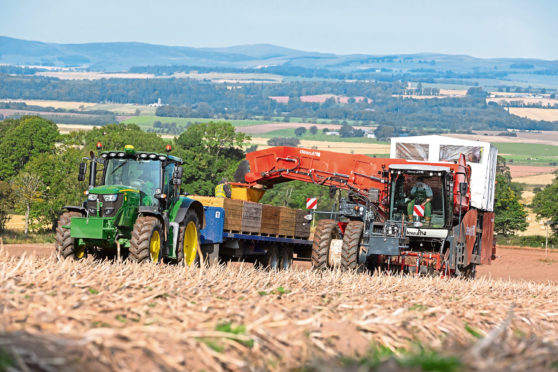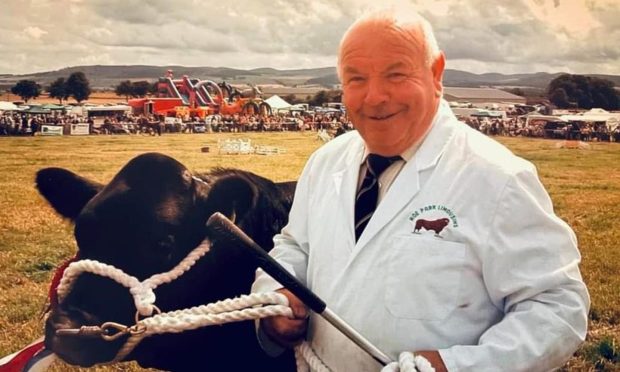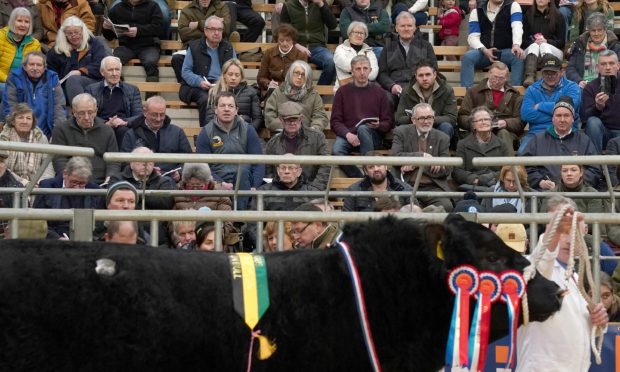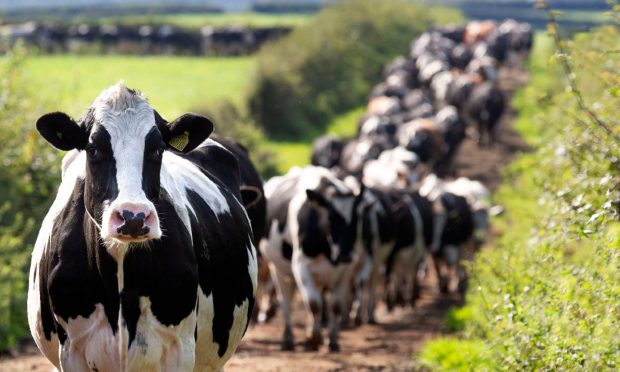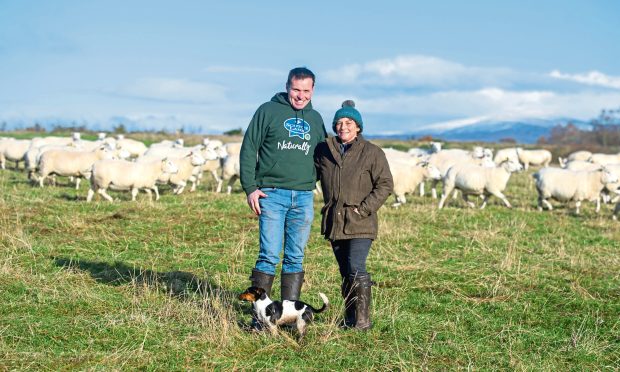Angus farmers are at the forefront of efforts to tackle the growing problem of potato cyst nematode (PCN) which is having a multi-million-pound impact on the Scottish industry every year.
As chemical options are withdrawn from use, a group of producers and researchers have turned their attention to biocontrol methods, which include using a chitin-rich compost made from a substance that occurs naturally in shellfish.
Brechin-based Martin Cessford of Angus Horticulture developed the compost and is currently trialling it on a PCN-scheduled field (one the pest has put out of production) on his Whanland Farm.
The impact of the compost on PCN infestation is being monitored by a research station in Belgium.
Mr Cessford said: “Dr Andy Evans of SRUC got dispensation to use seashells from food waste 12 years ago, and in six years the fields were clear.
“We know it enhances the flora in the soil, we know it improves the soil, we just need to prove it.”
The group is also working with the Rural Innovation Support Service (RISS), led by Soil Association Scotland, alongside SoilEssentials, Scottish Agronomy and SASA, to improve soil sampling to help farmers and agronomists decide on the best measures to take.
SoilEssentials managing director Jim Wilson, from Hilton of Fern, said: “The RISS group was a way of moving the problem forward and making a difference.
“At SoilEssentials we use high intensity sampling to locate the PCN nematodes – they don’t travel far. It gives us a foundation – unless you know where the problem is and how big it is, you can’t make a plan to tackle it.”
Other PCN measures being investigated by RISS include trap crops, where nematodes hatch and attach themselves to other plants where they can’t complete their life cycle, as well as PCN-resistant potato varieties.
nnicolson@thecourier.co.uk
